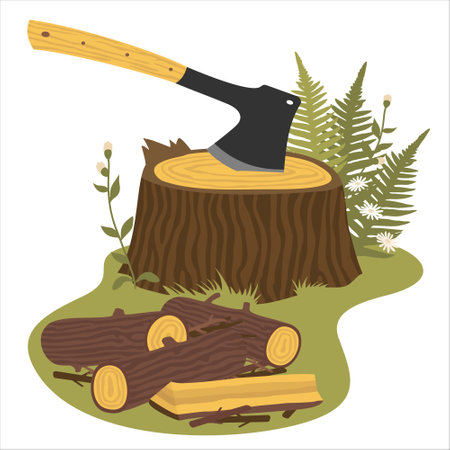Introduction to British Wildlife and Wild Camping
Wild camping in Britain offers a wonderful chance for families to immerse themselves in nature, forming lasting memories while surrounded by the UK’s remarkable natural heritage. Across the British Isles, you’ll find an incredible diversity of flora and fauna—from ancient woodlands carpeted with bluebells and ferns, to upland heaths alive with red grouse and nimble mountain hares. The call of the curlew across moorlands, the sight of deer at dusk, and encounters with delicate butterflies all add magic to your outdoor adventure. Yet with these unique opportunities come important responsibilities. When we choose to wild camp in the British countryside, we become guests in the homes of countless wild creatures and plants. It’s our role to tread lightly, show respect for local habitats, and ensure that our visit leaves no trace, so that future generations can also enjoy Britain’s wild beauty.
Understanding Local Laws and Guidelines
Before you set out on your wild camping adventure in Britain, it’s important to be aware of the local laws and guidelines that protect both the countryside and its wildlife. Unlike some countries, wild camping is not universally permitted across the UK, so understanding where you can legally pitch your tent is the first step to a respectful and responsible experience in nature. Here’s a quick overview of regulations across different regions:
| Region | Wild Camping Status | Key Guidelines |
|---|---|---|
| Scotland | Generally permitted under the Scottish Outdoor Access Code | Follow “leave no trace” principles, avoid enclosed fields, and respect privacy |
| England & Wales | Generally not permitted without landowners permission except for Dartmoor National Park | Seek permission, camp discreetly, and stay only one night in each spot |
| Northern Ireland | Usually not allowed unless on private land with consent | Obtain explicit permission before camping |
No matter where you are in Britain, always check local bylaws or park-specific rules before setting up camp. National parks and Areas of Outstanding Natural Beauty often have their own codes, emphasising respect for flora, fauna, and fellow explorers. For example, sticking to established paths helps protect delicate plant life, while keeping noise to a minimum ensures nearby animals remain undisturbed. By following these simple but vital guidelines, families can enjoy the magic of wild camping together, knowing they’re helping to preserve Britain’s beautiful natural spaces for generations to come.
![]()
3. Respectful Encounters: Observing Wildlife Safely
When wild camping in Britain, every encounter with nature is a chance to teach our children the value of respect and wonder. Here are some top tips for spotting and appreciating wildlife while ensuring we leave no trace of our visit and keep both ourselves and the animals safe.
Keep a Safe Distance
Always observe animals from afar using binoculars if you have them. Moving quietly and staying still helps you blend in, giving wildlife space to go about their day undisturbed. In British etiquette, it’s polite to let animals pass first on trails or footpaths—remember, we are guests in their home!
Use Gentle Voices and Movements
Whisper or speak softly when exploring woodlands, meadows, or by riversides. Sudden noises or movements may frighten creatures like red squirrels, deer, or nesting birds. Encourage children to tiptoe and listen closely; sometimes, just sitting quietly reveals magical moments, like a hedgehog snuffling through the leaves.
Never Feed Wild Animals
Feeding wildlife—even with good intentions—can harm their health and disrupt natural behaviours. British countryside etiquette encourages us to enjoy watching without offering food. Pack up all snacks and crumbs after picnics so curious foxes or badgers don’t get used to human treats.
Respect Plants as Well as Animals
It’s tempting for little hands to pick wildflowers or break off branches, but many British plants are protected or essential for local ecosystems. Teach children to look but not touch—photograph pretty bluebells or ancient ferns instead of picking them.
Leave No Trace
Before leaving your campsite, check that you haven’t left behind any rubbish or disturbed habitats. Tidy up together as a family, making it a gentle ritual that shows gratitude to the land and its inhabitants.
By following these simple yet meaningful guidelines, we help preserve Britain’s wonderful wildlife for future generations—and create memories of true harmony with nature along the way.
4. Leave No Trace: Protecting Habitats
When wild camping across the British countryside, it’s essential to tread lightly and safeguard the precious habitats you encounter. By following the principle of ‘Leave No Trace’, families can ensure Britain’s wild spaces remain vibrant for generations to come. Here are some practical tips to minimise your impact and nurture a culture of respect for nature.
Responsible Waste Disposal
Always take all rubbish with you, including food scraps and biodegradable items—these can harm local wildlife or disrupt natural processes. Use reusable containers and bags, and plan ahead so that you produce as little waste as possible. If facilities are available, recycle appropriately.
| Type of Waste | How to Dispose |
|---|---|
| Food Scraps | Pack out in sealed bags; never leave behind |
| Plastic & Packaging | Take home for recycling or proper disposal |
| Biodegradable Items | Treat like any other waste—pack out completely |
Campfire Etiquette
While a campfire feels cosy and traditional, they can damage sensitive ground and pose wildfire risks. In many places across Britain, open fires are discouraged or prohibited—always check local regulations first. Instead, use a portable stove for cooking and warmth. If fires are allowed, keep them small, use established fire rings where possible, and burn only dead wood from the ground.
Top Tips for Safe Campfires
- Only light fires where permitted
- Keep water nearby to douse flames completely
- Avoid burning plastics or non-natural materials
Protecting Sensitive Habitats
Bogs, heathlands, meadows, and ancient woodlands are home to rare plants and animals unique to Britain. Pitch tents on durable surfaces such as grassy patches or established clearings rather than delicate moss or heather. Avoid trampling on wildflowers or disturbing nesting sites; observe wildlife from a distance with quiet voices, especially in spring when animals are breeding.
| Habitat Type | Key Precautions |
|---|---|
| Bogs & Wetlands | Avoid walking through; stick to dry paths |
| Woodland Edges | Pit tents away from tree roots and saplings |
| Meadows & Heathland | Pit tents on bare earth patches if possible; avoid tall grasses in nesting season |
Caring Together as a Family
Involve children in every step—make packing out litter into a fun family challenge or play games spotting signs of wildlife without getting too close. These habits not only protect nature but also create cherished memories rooted in kindness towards the world around us.
5. Parent & Child: Nurturing Curiosity and Care
Wild camping in Britain offers a golden opportunity for families to connect not only with each other, but also with the wonders of local wildlife. By engaging children in thoughtful, hands-on activities, parents can nurture both curiosity and respect for the natural world. Here are some family-friendly suggestions to help little ones discover and care for Britain’s flora and fauna during your wild camping adventures.
Nature Walks with a Twist
Turn an ordinary stroll into a treasure hunt by encouraging children to spot animal tracks, listen for bird calls, or identify different leaves and flowers. Equip them with a simple British wildlife guidebook or a nature app, and let them tick off what they find. This keeps little explorers engaged while teaching them to observe without disturbing habitats.
Quiet Wildlife Watching
Early mornings or evenings are perfect for quietly observing deer, rabbits, or even foxes from afar. Teach children about the importance of silence and stillness when watching animals, explaining that loud noises might frighten them away or disrupt their routines. Bring along binoculars for a closer look, reminding everyone to keep a respectful distance.
Bug Hotels and Mini-Beast Safaris
Invite your child to create a simple bug hotel using fallen twigs, leaves, and pinecones, placing it carefully where insects are likely to visit. Go on a “mini-beast safari” around your campsite—look under logs (and always replace them), study ants at work, or gently observe butterflies fluttering by. Discuss why every creature plays an important role in the ecosystem.
Storytelling Around the Campfire
Share traditional British tales about local wildlife—think of wise old owls or clever hedgehogs—or make up your own stories inspired by what you’ve seen during the day. This sparks imagination while reinforcing messages about kindness towards animals and plants.
Leave No Trace Together
Make caring for nature a team effort by involving children in tidying up the campsite each day. Encourage them to pick up litter (using gloves), check for forgotten belongings, and ensure fires are fully out. Praise their efforts as true young guardians of Britain’s wild places.
By weaving these gentle activities into your wild camping trip, you’ll help your child build lifelong respect and affection for British wildlife—ensuring magical memories that last long after you return home.
6. Dealing with Common Challenges
Even the most well-prepared wild campers in Britain will occasionally encounter unexpected guests or prickly situations. Here’s how you and your family can stay calm, considerate, and safe while embracing the great outdoors together.
Foxes on the Prowl
Curious urban foxes are a familiar sight across the UK, sometimes venturing close to campsites in search of easy snacks. If you spot a fox near your tent, keep your food securely stored—preferably in sealed containers and away from your sleeping area. Remind children that foxes should be admired from a distance; never feed them, as this can encourage bold behaviour and disrupt their natural habits. Instead, take the opportunity to watch quietly and talk about how these clever creatures fit into Britain’s wildlife tapestry.
Avoiding Stinging Nettles
Stinging nettles are common throughout British countryside, often lurking along footpaths or at the edge of fields. Teach little explorers to recognise their jagged leaves and to steer clear. If someone does brush against nettles, reassure them: it’s uncomfortable but not dangerous. Washing the affected area with cool water and applying a soothing cream (like dock leaf sap or over-the-counter remedies) usually eases the sting quickly. Make it a gentle lesson in respecting nature’s boundaries—and how every plant has its place.
Encounters with Insects and Other Creatures
From busy bees to scampering hedgehogs, British wildlife is wonderfully diverse. Encourage children to observe insects and animals quietly, without chasing or disturbing them. If wasps or ants get too interested in your picnic, calmly cover food and move away rather than swatting or panicking—showing little ones how patience and respect help everyone enjoy their day out.
Staying Calm and Considerate
Whether you’re dealing with inquisitive squirrels or startled deer, modelling calm reactions teaches children resilience and empathy for all living things. Turn each challenge into a conversation: why might an animal behave a certain way? How can we minimise our impact on their habitat? This approach not only keeps everyone safe but also fosters a lifelong love for the wonders of British wildlife.
Family Tip:
Keep a small ‘nature kit’ handy—think magnifying glass, field guidebook, and a basic first aid kit—so you’re ready for any adventure or mishap. Remember, every challenge faced together becomes part of your family’s wild camping story!
7. Becoming a Wildlife Ambassador
As you and your family explore the great outdoors of Britain, every wild camping trip is an opportunity to become a true wildlife ambassador. Encouraging children—and grown-ups too—to care for the plants and animals they encounter helps build a lifelong respect for nature. But how can your family take the next step and champion wildlife conservation?
Encouragement to Make a Difference
It starts with small, everyday choices: choosing not to disturb nesting birds, picking up litter left behind by others, or simply watching quietly as deer graze at dawn. These gentle acts of kindness add up, showing your children that their actions matter. Celebrate their curiosity and help them understand why it’s important to leave wild spaces as they found them. Your positive example will inspire them more than any lesson ever could.
Resources for Further Learning
The UK is brimming with fantastic resources to help families learn more about British wildlife and responsible camping. Organisations such as The Wildlife Trusts, RSPB (Royal Society for the Protection of Birds), and The Woodland Trust offer engaging guides, local events, and family-friendly activities. Consider visiting nature reserves or joining citizen science projects like bird counts or bug hunts—you’ll make lasting memories while supporting vital research.
Inspiring a New Generation of Nature Champions
When you share stories around the campfire—perhaps about the badgers seen at dusk or ancient trees overhead—you’re sowing seeds of wonder that can last a lifetime. Encourage your children to ask questions, draw what they see, or keep a simple nature journal. Small steps like these empower young explorers to become thoughtful guardians of Britain’s precious flora and fauna.
Together, by learning and acting with care, your family can help ensure that wild camping in Britain remains a respectful adventure for everyone—humans and wildlife alike.


